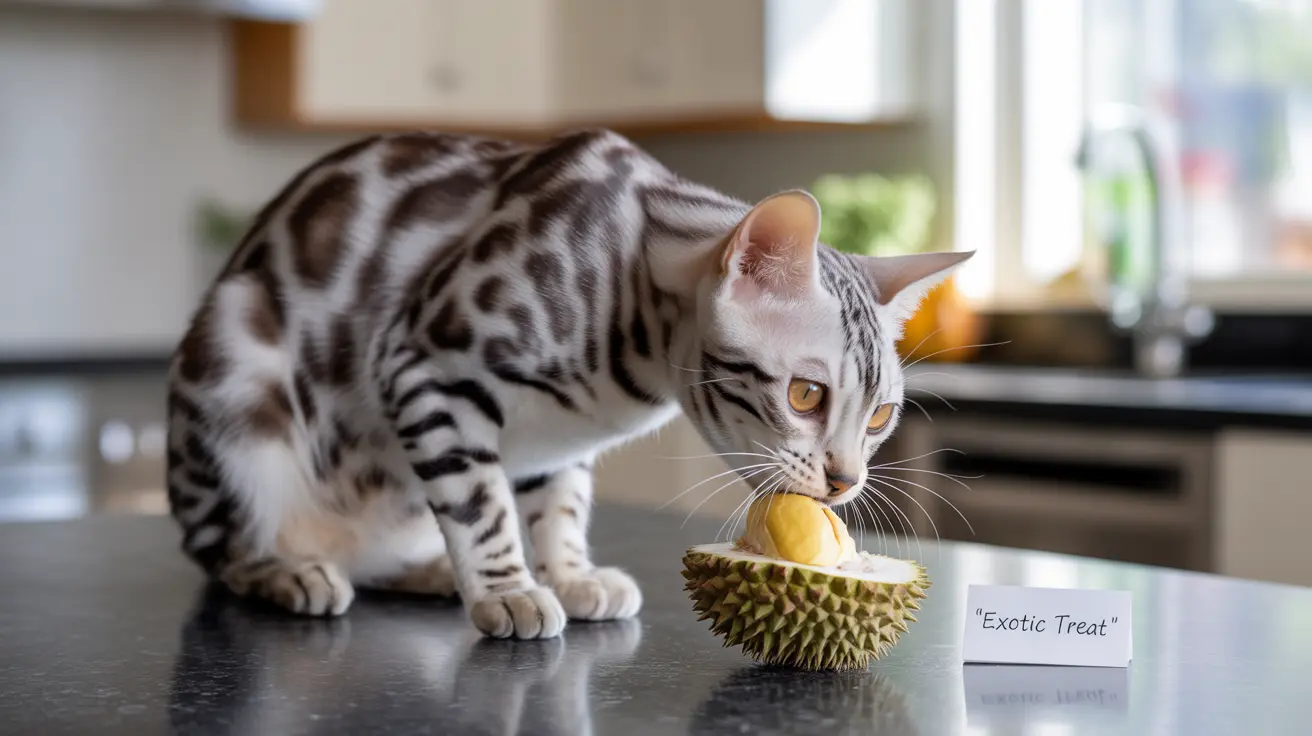If you're a cat owner who enjoys exotic fruits, you might wonder whether sharing durian with your feline friend is safe. Known as the "king of fruits" in Southeast Asia, durian's distinctive aroma and creamy texture make it a unique culinary experience for humans - but what about cats?
While durian isn't technically toxic to cats, veterinary experts generally advise against feeding it to your feline companion. As obligate carnivores, cats have specific dietary needs that fruits like durian simply don't meet, and there are several important considerations to keep in mind before sharing this tropical delicacy with your pet.
Understanding Cats' Dietary Needs vs. Durian's Composition
Cats are strict carnivores, meaning their bodies are designed to process and utilize nutrients primarily from animal-based proteins. Their digestive systems lack certain enzymes needed to properly process plant-based foods, including fruits like durian.
Durian contains high levels of carbohydrates (27.1g per 100g) and sugars, which cats' bodies aren't equipped to handle efficiently. Additionally, cats can't even taste sweetness due to lacking the necessary taste receptors, making durian's appeal largely lost on them.
Potential Health Risks of Feeding Durian to Cats
Digestive Issues
The high fat and sugar content in durian can lead to several digestive problems in cats, including:
- Vomiting
- Diarrhea
- Stomach upset
- Excessive gas
Long-term Health Concerns
Regular consumption of high-sugar fruits like durian could contribute to:
- Obesity
- Diabetes
- Dental problems
- Metabolic disorders
The Impact of Durian's Strong Odor on Cats
Cats have an extremely sensitive sense of smell - approximately 14 times stronger than humans. While people might find durian's aroma controversial, most cats are likely to be overwhelmed by its powerful scent. This natural aversion actually serves as a protective mechanism, helping cats avoid foods that aren't part of their natural diet.
Safe Feeding Guidelines
If you're still considering offering durian to your cat, follow these strict guidelines:
- Limit portions to no more than a pea-sized amount
- Never feed durian seeds or pits
- Offer only fresh, plain durian flesh
- Monitor your cat for any adverse reactions
- Keep treats to less than 10% of daily caloric intake
Better Alternatives for Feline Treats
Instead of durian, consider these veterinarian-approved treats for your cat:
- Small pieces of plain, cooked chicken
- Commercial cat treats formulated for feline nutrition
- Tiny amounts of plain, cooked fish
- Cat-safe catnip or cat grass
Frequently Asked Questions
Can cats safely eat durian fruit, or is it harmful to their health?
While durian isn't toxic to cats, it's not recommended as part of their diet. The fruit's high sugar and fat content can cause digestive issues and contribute to health problems over time.
What are the risks of feeding durian to cats, especially regarding digestion and sugar content?
The main risks include digestive upset (vomiting and diarrhea), potential weight gain, and blood sugar irregularities. The high fat content can also lead to pancreatitis in sensitive cats.
How much durian can I give my cat if I want to offer it as an occasional treat?
If you must offer durian, limit it to a pea-sized amount no more than once per week. However, it's better to choose treats specifically formulated for cats instead.
Why do most cats dislike the smell and taste of durian?
Cats have extremely sensitive noses and are generally put off by durian's strong, pungent odor. Additionally, cats can't taste sweetness, so durian's appeal to humans doesn't translate to feline preferences.
Are there safer fruit alternatives to durian that I can feed my cat?
While cats don't need fruits in their diet, small amounts of watermelon or blueberries are safer options. However, the best treats are those specifically designed for cats or small pieces of plain, cooked meat.






